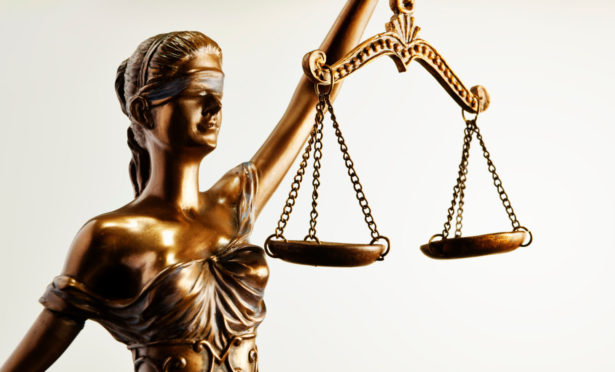
The mills of God – or the wheels of justice – might grind slowly, we are told, but they grind fine.
Well, sometimes, admittedly very rarely, the wheels of Scottish justice seem to spin at a speed too fast for thought, without time, apparently, to add an ounce of compassion or common sense.
The case of Leigha Collins, which we highlight today, is hard to believe and, even after some thought, harder to understand. Whether this young woman, who felt stranded and threatened in a foreign country, was legally justified when she fled with her children is not the point, or at least not, at this time, the most important point.
It was the point of the hearing before Lord Brailsford, of course, and it was the only point he apparently considered before deciding that an 18-year-old woman and her baby should be compelled to travel across Europe despite a global lockdown.
Did no one involved, none of the assembled legal brains dialling into this extraordinary hearing, think, for even a moment, that this was not, in fact, a good idea? That any departure should be delayed, at the very least, until the world starts spinning again? Seemingly not and it can only be hoped someone in a position of authority can slow this spinning wheel.
It also must be hoped the same person, perhaps Justice Secretary Humza Yousaf, or maybe even his boss, can also intervene to help secure justice for Emma Caldwell and her family, still without answers 15 years after her death.
While some cases seem to speed to untenable, unthinkable conclusions, in others, the wheels of justice seem to have stopped grinding slowly and have simply ground to a halt.
In these hyperbolic times, we have become inured to disgrace, the word is used too often to carry much weight. But sometimes it is the only word that will do. What Margaret Caldwell has endured at the hands of the Scottish justice system is a simple disgrace, a national shame.
Of course, our police and prosecutors were not responsible for the awful murder of her daughter, Emma, 15 years ago. The police were responsible, however, for a misguided, ill-fated investigation and then, more culpably, refusing to investigate a suspect, whose existence was known to many of Police Scotland’s most senior officers, for 10 years until his existence was revealed by a newspaper. It eventually took then-Lord Advocate Frank Mulholland to tell our national force to get a grip.
That was five years ago and Mr Mulholland’s successor James Wolffe clearly does not share his sense of urgency or his desire to lighten Mrs Caldwell’s burden of grief and uncertainty and allow her to keep a promise given to her dying husband to secure justice for their lost daughter.
If there is no justice for one of us, there is no justice for any of us and the apparently rusted wheels of this prolonged, tortuous investigation must be turned again.

Enjoy the convenience of having The Sunday Post delivered as a digital ePaper straight to your smartphone, tablet or computer.
Subscribe for only £5.49 a month and enjoy all the benefits of the printed paper as a digital replica.
Subscribe